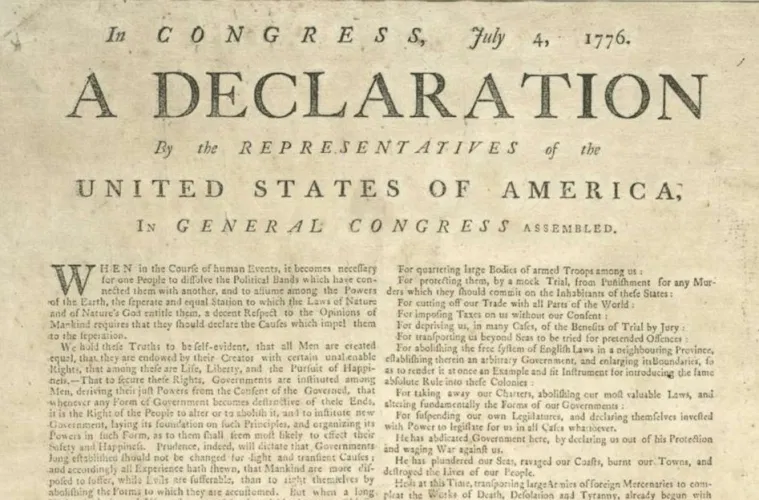About Publications Library Archives
heritagepost.org

Preserving Revolutionary & Civil War History

Preserving Revolutionary & Civil War History

Author: Thomas Jefferson
Date:1776
Annotation:
More than a year past between the outbreak of fighting at the battles of Lexington and Concord and the decision to issue the Declaration of Independence. The major reason for the delay was the high value that the colonists attached to unanimity. While New England, Virginia, and South Carolina were ready to declare independence in 1775, other colonies still hoped that British merchants or the parliamentary opposition would respond to American grievance. Many feared that a full-scale war for independence might give France and Spain the opportunity to expand their New World empires.
In a famous clause that was ultimately deleted from the Declaration of Independence, Thomas Jefferson (1743-1826) cited the African slave trade as one of the examples of British oppression. Jefferson’s reference to the King’s “prostit[ing] his negative” refers to the English government’s repeated vetoes of attempts by colonial legislatures to restrict or halt the importatation of slaves. Virginia, especially, had profited from a great natural increase in its slave population and had no desire for a further slave “surplus” or for competition with its own profitable proactice of selling slaves to South Carolina and Georgia. Ironically, Jefferson’s language reinforced the antislavery myth that Englishmen were “captivating” and forcibly enslaving Africans. In actuality, the vast majority of slaves had been enslaved in the African interior and sold to various African dealers before being finally purchased by Europeans.
Document: He [King George] has waged cruel war against human nature itself, violating its most sacred rights of life & liberty in the persons of a distant people who never offended him, captivating & carrying them into slavery in another hemisphere, or to incur miserable death in their transportation thither. This piratical warfare, the opprobrium of infidel powers, is the warfare of the Christian King of Great Britain, determined to keep open a market where MEN should be bought & sold, he has prostituted his negative for suppressing every legislative attempt to prohibit or to restrain this execrable commerce: and that this assemblage of horrors might want no fact of distinguished die, he is now exciting those very people [slaves in the South] to rise in arms against us, and to purchase that liberty of which he has deprived them by murdering the people upon whom he also obtruded them: thus paying off former crimes committed against the liberties of one people, with crimes which he urges them to commit against the lives of another.
Source: Writings of Thomas Jefferson. Collected and edited by Paul Leicester Ford. New York: New York: G.P. Putnam’s Sons, 1893, Vol. II, pp. 52-54.